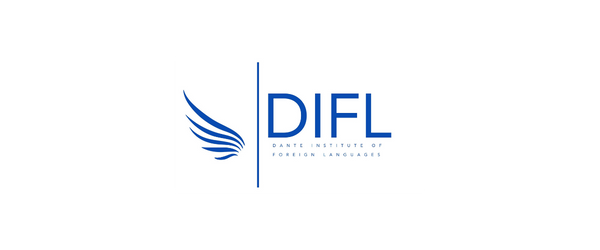Learn Korean Language with TOPIK Exams in Mind-The Ultimate DIFL Guide
Introduction
Why Learn Korean Language?
Korean is the official language of South Korea and North Korea, and it is spoken by over 75 million people worldwide. With the growing popularity of K-Pop, K-Dramas, and Korean culture, learning the Korean language has become more important than ever. Apart from the cultural advantages, there are several economic and career benefits to learning Korean. It is the fifth most popular language on the internet and has significant demand in industries such as technology, finance, and tourism.
What is TOPIK?
TOPIK stands for Test of Proficiency in Korean, and it is the official language proficiency test for non-native Korean speakers. It is recognized worldwide as a measure of Korean language proficiency, and passing the TOPIK exam can open doors to many opportunities, including employment in Korea, admission to Korean universities, and scholarships.
Levels of TOPIK
TOPIK I (Levels 1 and 2)
TOPIK I is the beginner level, and it consists of two sub-levels: Level 1 and Level 2. Level 1 measures the basic knowledge of the Korean language, including the ability to read and write simple sentences. Level 2 measures the ability to carry out simple conversations on everyday topics.<h3>
TOPIK II (Levels 3, 4, 5, and 6) For TOPIK I, you need to focus on basic grammar, vocabulary, and sentence structure. You should be able to read and write simple sentences, understand basic conversations, and respond appropriately. Some essential topics to cover include introducing oneself, asking for directions, ordering food, and expressing opinions.
TOPIK II (Levels 3, 4, 5, and 6)
TOPIK II is the intermediate and advanced level, and it consists of four sub-levels: Level 3, Level 4, Level 5, and Level 6. Level 3 measures the ability to carry out daily conversations on familiar topics. Level 4 measures the ability to express oneself effectively on various topics. Level 5 measures the ability to understand and analyze complex texts, and Level 6 measures the ability to communicate effectively in academic and professional settings.
What to Learn for Every Level
TOPIK I (Levels 1 and 2)
For TOPIK I, you need to focus on basic grammar, vocabulary, and sentence structure. You should be able to read and write simple sentences, understand basic conversations, and respond appropriately. Some essential topics to cover include introducing oneself, asking for directions, ordering food, and expressing opinions.
TOPIK II (Levels 3, 4, 5, and 6)
For TOPIK II, you need to focus on more advanced grammar, vocabulary, and sentence structure. You should be able to understand and analyze complex texts, express opinions and ideas effectively, and communicate in academic and professional settings. Some essential topics to cover include politics, social issues, science and technology, economics, and culture.
How to clear TOPIK Exam?
Understand the Format
The TOPIK exam consists of two sections: the written test and the speaking test. The written test has four sections: vocabulary and grammar, writing, listening, and reading. The speaking test consists of a one-on-one interview with an examiner.
The Test of Proficiency in Korean (TOPIK) is an official exam to assess the proficiency of non-native Korean speakers. The exam consists of two parts: a written test and a speaking test. The written test includes four sections: Vocabulary and Grammar, Writing, Listening, and Reading. The speaking test is a one-on-one interview with an examiner.
TOPIK has six levels of proficiency, ranging from beginner (Level 1) to advanced (Level 6). The following table provides a comparison of the format and skills required for each level:
| Level | Vocabulary | Writing | Listening | Reading | Speaking |
| 1 | 200 words | 50 | 50 | 50 | – |
| 2 | 1,500 words | 200 | 100 | 100 | – |
| 3 | 3,000 words | 300 | 120 | 120 | 20 |
| 4 | 6,000 words | 400 | 140 | 140 | 20 |
| 5 | 10,000 words | 500 | 150 | 150 | 30 |
| 6 | 15,000 words | 600 | 200 | 200 | 40 |
For Vocabulary and Grammar section, it tests the test-takers’ understanding of basic grammar and sentence structures at lower levels, and gradually becomes more complex as they progress to higher levels.
The Writing section involves essay writing or letter writing, depending on the level. The topics may be related to daily life or current affairs.
The Listening section comprises multiple choice questions, and the recordings are played only once. It tests the ability to comprehend everyday conversations and academic lectures or news reports.
The Reading section also consists of multiple-choice questions, testing the test-takers’ comprehension of various genres of written materials such as advertisements, newspaper articles, and literary works.
The Speaking section tests the test-takers’ ability to express themselves in Korean. The test-takers are expected to give a brief self-introduction and engage in a conversation with the examiner on a given topic.
It is important to note that the level of difficulty for each section varies according to the level of proficiency being tested.
TOPIK is an effective measure of Korean language proficiency and is recognized globally. With regular practice and diligent study, anyone can prepare for and pass the exam, unlocking new opportunities for career and education in Korea.
Practice Regularly
The key to clearing the TOPIK exam is regular practice. You should practice all four sections of the written test and focus on developing your speaking skills. You can join a language institute or hire a personal tutor to help you practice effectively.
TOPIK Study Materials
There are several study materials available online and offline to prepare for the TOPIK exam. These materials include textbooks, workbooks, online courses, and practice tests. You should use these materials to develop a comprehensive understanding of the Korean language and practice the exam format.
Here are some good books available in India to clear TOPIK Korean exam for all levels:
- Complete Guide to the TOPIK: Basic & Advanced by Satish Chandra Satyarthi
- TOPIK Essential Grammar 150 by Darakwon
- TOPIK Master: Vocabulary by Darakwon
- TOPIK Master: Reading by Darakwon
- TOPIK Master: Writing by Darakwon
- TOPIK in 30 Days: Master the Test by Cho Sang-Hun
- Korean Grammar in Use: Beginning to Early Intermediate by Ahn Jean-Myung
- Korean Made Simple: A Beginner’s Guide to Learning the Korean Language by Billy Go
These books are easily available on online platforms like Amazon, Flipkart, and other bookstores in India. They cover all levels of the TOPIK exam and provide comprehensive study material, practice exercises, and tips to help you prepare for the exam.
Take Mock Tests
Taking mock tests is an excellent way to assess your progress and identify your weaknesses. You can take mock tests online or at a language institute. Mock tests help you get familiar with the exam format and improve your time management skills.
Advantages of Learning Korean
Cultural Advantages
Learning Korean language and culture provides several cultural advantages, including understanding Korean literature, music, movies, and television dramas. It also helps in building relationships with Korean people, both in personal and professional settings.
Economic Advantages
Korean is a popular language in industries such as technology, finance, and tourism. Learning Korean can lead to job opportunities and career growth in these industries.
Personal Advantages
Learning Korean language can also have personal advantages, including improving cognitive skills, enhancing memory, and developing a new skill.
Some websites to help you with your learning goals:
- Talk to Me in Korean: https://talktomeinkorean.com/
- Duolingo: https://www.duolingo.com/course/ko/en/Learn-Korean-Online
- KoreanClass101: https://www.koreanclass101.com/
- How to Study Korean: https://www.howtostudykorean.com/
- Memrise: https://www.memrise.com/courses/english/korean/
- Lingodeer: https://www.lingodeer.com/courses/ko/ko/
- Coursera: https://www.coursera.org/courses?query=korean%20language
- EdX: https://www.edx.org/learn/korean
- Korean Language Education Center: https://klec.snu.ac.kr/eng/
- National Institute of Korean Language: https://www.korean.go.kr/eng.do
DIFL’s Unique Methodology to Learn Korean
At DIFL, we focus on developing conversational skills by using real-life scenarios and situations. Our courses are designed to help you become proficient in the Korean language, both in written and spoken forms.
Use of Technology
We use the latest technology to make learning Korean language easy and fun. Our courses include interactive classes, online study materials, and practice tests.
Experienced Faculty
Our faculty members are experienced and qualified in teaching the Korean language. They use innovative teaching methods to help students learn and excel in the language.
Hybrid Courses
We offer hybrid courses that combine the benefits of both online and offline courses. Our courses are designed to meet the needs of students with different schedules and learning styles. At DIFL, we offer a unique methodology to learn Korean that focuses on making the learning process fun and engaging. Our courses are designed to cater to different learning styles and skill levels. We offer online, offline, and hybrid courses, and our experienced teachers provide personalized attention to each student. Our curriculum is specially curated to ensure that our students attain full conversational command of the language.
If you’re interested in learning Korean language, DIFL – Dante Institute of Foreign Languages is the best place to start your language journey. As the oldest and most reputable foreign language institute in Jaipur, we offer the best Korean language courses for all levels, from beginner to advanced. Our expert instructors, who are native Korean speakers, will guide you through the language learning process and help you achieve your goals.
At DIFL, we offer both online and offline classes for Korean language, and our courses cover all levels of proficiency. Whether you’re looking to learn Korean for business or pleasure, we have you covered. Our courses are designed to help you develop your reading, writing, listening, and speaking skills, and we use a variety of teaching methods to make sure that you stay engaged and motivated.
To learn more about our Korean language courses, please feel free to contact us at any time. You can reach out to us by calling Mr Priyanshu Sharma at 9929-51 51 51, Mrs Roopshikha Sharma at 9314502814, or Mr Akash Verma at 9001016193. Alternatively, you can visit our website at www.mydifl.com for further details.
Our friendly and knowledgeable team is always available to assist you in any way possible, so don’t hesitate to get in touch today. Start your Korean language learning journey with us and discover the beauty and richness of Korean culture.

